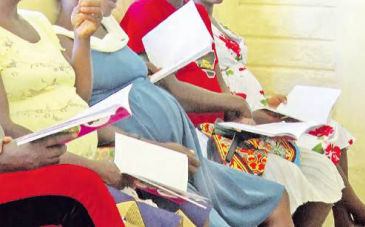
Types of Obstetric Violence (OBV)
OBV is a form of violence agaainst women, that occurs while receiving maternal care.
“Every woman deserves a safe and dignified childbirth experience."
In Summary

Sixty per cent of
maternal deaths in Kenya are due to
poor-quality care linked to obstetric
violence (OBV), a study has found.
A report by Gama Africa Foundation highlights the grim reality of OBV in Kenya, highlighting its profound impact on women’s health and dignity during childbirth.
The foundation’s project manager Abigail Gikonyo presented the findings, highlighting critical gaps in maternal healthcare systems and calling for immediate interventions to ensure women receive dignified care.
“Maternal mortality rates in Kenya remain alarmingly high, with estimates from organisations like WHO and Unicef ranging from 500 to 600 deaths per 100,000 live births. This is unacceptable, and it underscores the urgent need for action.”
She added that the foundation, through its #HeshimuUzazi campaign, has initiated several interventions. These include rescuing detained mothers unable to pay hospital bills, intervening in cases of alleged newborn theft and conducting nationwide awareness campaigns.
The foundation has also worked to sensitise community health promoters and advocated for policy changes in Parliament to outlaw OBV.
“Every woman deserves a safe and dignified childbirth experience,” Gikonyo said, urging healthcare professionals to adopt more empathetic practices.
The report identifies key factors contributing to this crisis, including limited civic education, insufficient training for healthcare providers and the absence of a legal framework recognising OBV as a form of violence. Economic barriers also exacerbate the issue.
“A lack of financial support systems prevents vulnerable women from accessing quality maternal care,” Gikonyo said.
She noted that neglect in addressing postpartum recovery processes is a major concern. Obstetrician-gynaecologist Dr Benjamin Odongo, representing the Kenya Obstetrical and Gynecological Society (KOGS), called for urgent action against OBV.
He said OBV, which affects women during labour, delivery and postnatal care, has far-reaching consequences, including postpartum depression, perineal tears, obstetric fistulas and neonatal complications like cerebral palsy.
“OBV not only impacts women immediately but also contributes to long-term health challenges,” Dr Odongo said.
He highlighted that postpartum depression rates are rising, partly due to poor care during childbirth. Dr Odongo called for improved infrastructure, better allocation of human resources and an adequate supply of essential medical items like gloves and pharmaceuticals.
“Women should not have to share beds or deliver in undignified environments,” he stressed. He also pointed to the uneven distribution of gynecologists across Kenya as a significant barrier.
“Many specialists are concentrated in urban areas, leaving rural regions underserved,” he said. “This imbalance needs urgent correction.”

OBV is a form of violence agaainst women, that occurs while receiving maternal care.

OBV is a form of violence against women, that occurs while receiving maternal care.